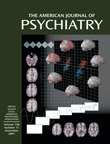Guilt From Negative Genetic Test Findings
To the Editor: Previous studies have shown two types of guilt feelings appearing after the disclosure of genetic test results. The first is associated with the transmission of a genetic disease to a child (1), and the second is termed “survivor guilt” (2). Both of these feelings usually involve a reaction formed after an individual learns of the positive test results of blood relatives. We report on a man who felt guilty after hearing of positive test results for the family members of individuals in his support group.
Mr. A, a 49-year-old man, underwent a total colectomy for familial adenomatous polyposis. He and his 15-year-old son requested predictive genetic testing 3 years later to reduce uncertainty and to help plan his son’s future, because Mr. A’s mother had died of colon cancer secondary to familial adenomatous polyposis. Mr. A and his son were provided with both an educational session explaining the genetics of hereditary diseases and counseling regarding the possible impact of positive test results. The tests revealed the presence of a mutation in the father but not in the son. Mr. A was relieved that his “bad blood” had not been passed on to his son. Later, however, he began to experience anhedonia and became depressed for several days. His primary care physician could not determine the reason for his feelings.
Mr. A was the chairperson of a familial adenomatous polyposis patient support group run by patients, their families, and health care providers. The group had been established to help families with familial adenomatous polyposis exchange information and experiences. Mr. A began to feel guilty because his son had tested negative while family members of others in his support group had tested positive for the disease.
Familial adenomatous polyposis is a rare, heredity, autosomal-dominant disease caused by a germline mutation. Those who are affected by it experience great relief from sharing information and concern with other patients and families. The strong bond that develops among the members of such groups may explain the patient’s feelings of guilt. The patient did not fulfill DSM-IV criteria for major depression and had no personal or family history of psychiatric illness. Consequently, the patient’s primary care physician and nurses had difficulty explaining his anhedonia. The present case suggests that psychiatric specialists should be involved in the genetic counseling system. Moreover, health care providers should pay attention to potential feelings of guilt in their patients that may be directed toward the family members of individuals participating in a support group who may be receiving the results of genetic tests.
1. Meissen GJ, Myers RH, Mastromauro CA, Koroshetz WJ, Klinger KW, Farrer LA, Watkins PA, Gusella JF, Bird ED, Martin JB: Predictive testing for Huntington’s disease with use of a linked DNA marker. N Engl J Med 1988; 318:535-542Crossref, Medline, Google Scholar
2. Lerman C, Daly M, Masny A, Balshem A: Attitudes about genetic testing for breast-ovarian cancer susceptibility. J Clin Oncol 1994; 12:843-850Crossref, Medline, Google Scholar



